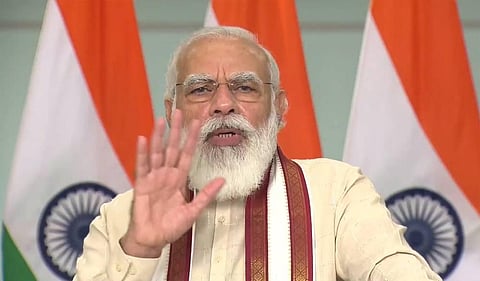

Just because somebody occupies the most exalted seat in the country, he does not automatically become the most appreciated personality in the country. Presidents like Rajendra Prasad and K R Narayanan became exalted and appreciated, not because they sat in that chair but because they conducted themselves with a dignity, decorum and propriety that won people’s appreciation. Alas, the current incumbent does not rise to that measure.
Ram Nath Kovind’s latest public announcement is something the President of India should never have made. “My salary is five lakh a month,” he said, “but I pay Rs 2.75 lakh in taxes. After paying my taxes I get less than what some officers get.” He should have understood that the citizens of the country would know what he left unsaid. The man who pays Rs 2.75 lakhs in taxes gets to live in a 340-room mansion for free. He does not have to pay for the 25 cooks, 184 gardeners and 57 cleaners who take care of his premises (accounting for a monthly salary of Rs 1.34 crore).
Does Kovind know that his 48 bodyguards, nine private secretaries, eight phone operators and 27 drivers do not cost him anything, that the monthly telephone bill of Rs 5 lakh plus is paid by citizens, that the annual budget for his staff and household allowances is Rs 66 crore?
Pretending to be like any other citizen is inexcusable in such a situation. So is any attempt to make unwarranted claims about the taxes he pays. Citizens know not only about the across-the-board considerations the President of India enjoys; they also know about the ways in which accidental Presidents like Pratibha Patil and Giani Zail Singh misused those considerations.
Perhaps, the time has also come to question the assumption that a Dalit reaching the top is a great achievement in itself. K R Narayanan reached several top positions by acquiring the qualifications required for those positions, not by flaunting his Dalit status. That he acquired those qualifications in spite of being a Dalit was the mark of his distinction.
It is important to see the difference between K R Narayanan’s India and Ram Nath Kovind’s India. One was led by the ideals of democracy, the other by the dictates of a dominant personality. One represented Jawaharlal Nehru’s India, the other Narendra Modi’s India. To ignore this perspective is to distort reality for political purposes. To say that Kovind represented Dalits just as Narayanan represented Dalits is not fair to Dalits. Narayanan brought credit to Dalits. Kovind lives off the credit Dalits have. The scenario represents an upside-down reality in which India is caught.
It was Kovind’s record as a loyalist that made Narendra Modi pick him for the top job. An RSS pracharak and spokesman, Kovind served as the chief of BJP’s Scheduled Caste Morcha for four years from 1998. This was drastically different from the considerations that made Atal Bihari Vajpayee choose A P J Abdul Kalam for the President’s post. As lawyer-activist Indira Jaising said: “Kovind was selected with the 2019 Lok Sabha elections in mind. Since there is no predictability about voter behaviour, a loyalist President can favourably handle any political uncertainty in 2019 with his discretionary powers.” Modi, nowhere near Vajpayee in self-confidence, obviously did not want to take any chances. He would feel secure only if there was a rubber-stamp President in the tradition of Fakhruddin Ali Ahmed. He got one.
What the country saw was a double-whammy. The Prime Minister underlined his pre-eminence by choosing a loyalist for the President’s post. The President saw that his primary duty was to preserve, protect and defend, not the Constitution of India, but the Prime Minister. In the process, the overriding reality of India got underlined: That personal interests superseded national interests. The Prime Minister’s supremacy was more important than anything else for the progress of new India.
This fundamental shift in the interpretation of democracy need not surprise anyone. It merely reflects the changes that have overtaken India and the low levels the country’s administrative morality has reached. India is not like the United States where there are limits the President cannot cross. Those who try to ignore those limits end up like Richard Nixon. India has more in common with Vladimir Putin’s Russia where the President’s experiments with “cosmetic constitutionalism” has one aim only: To prolong his reign indefinitely. Ditto with Xi Jinping’s “socialist democracy.” Why should — how can — India be different when it combines the virtues of Putin with the talents of Xi. We are all democracies, aren’t we?